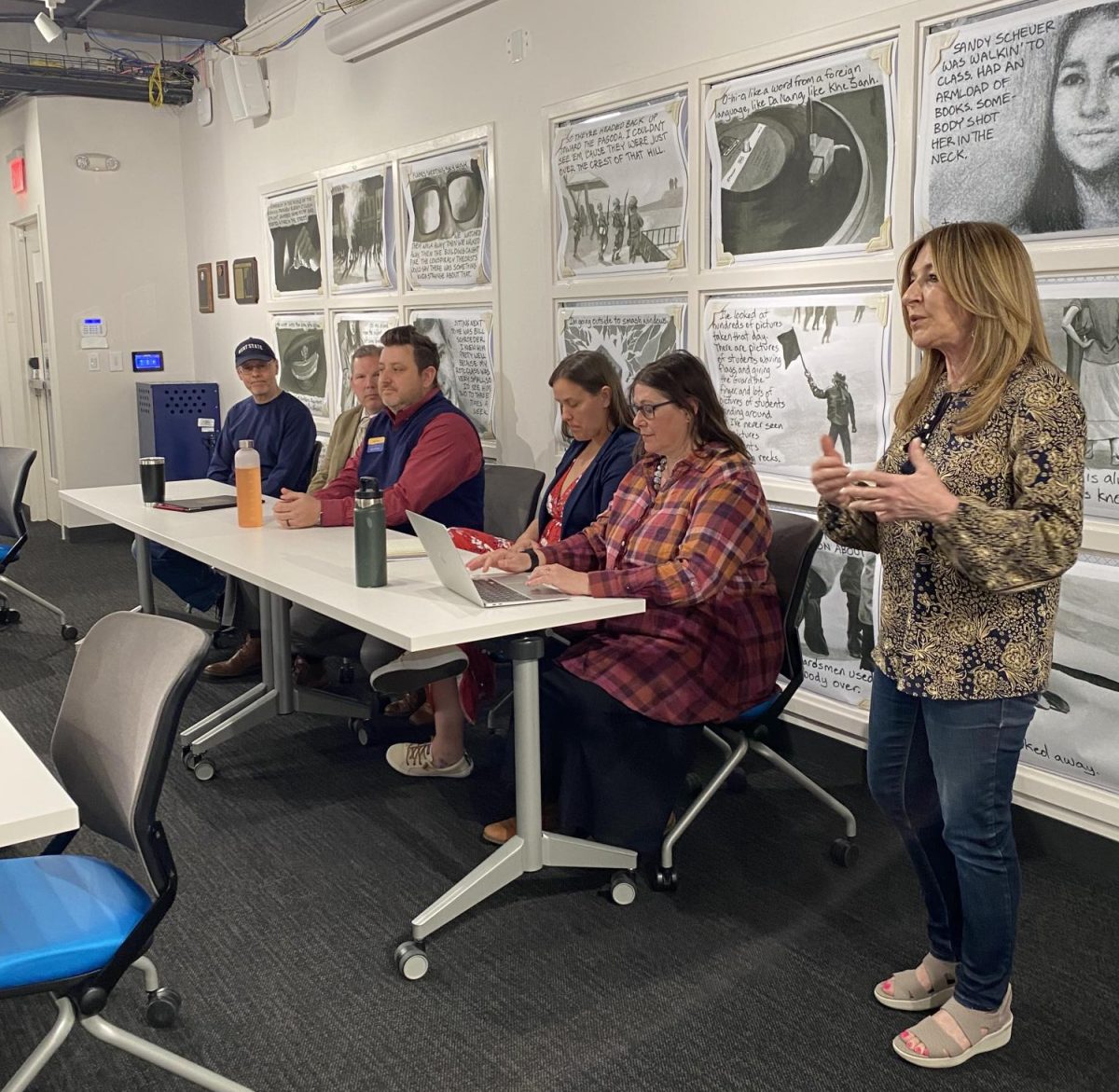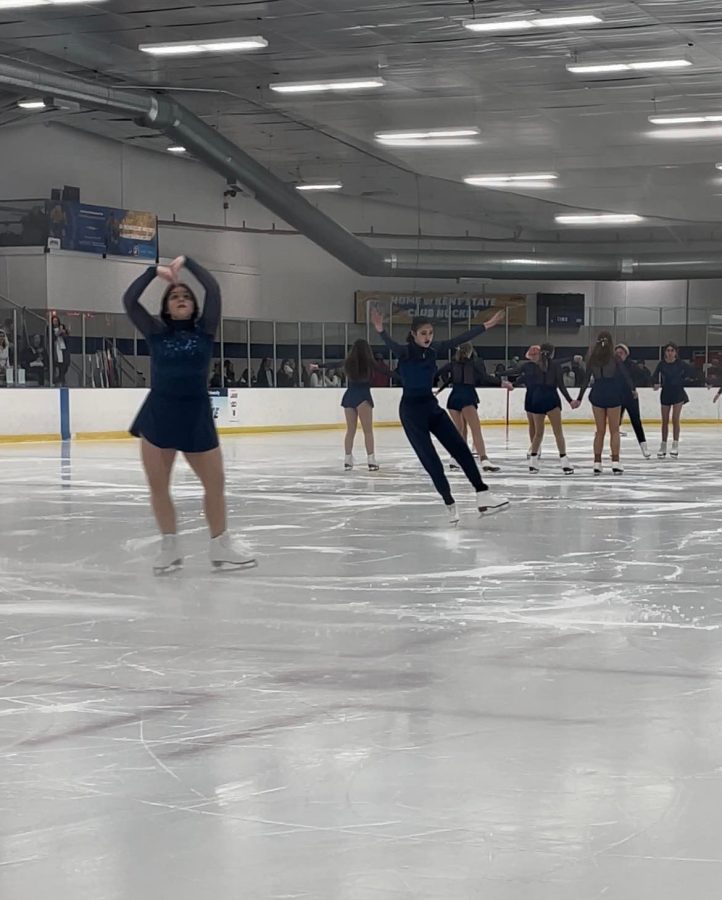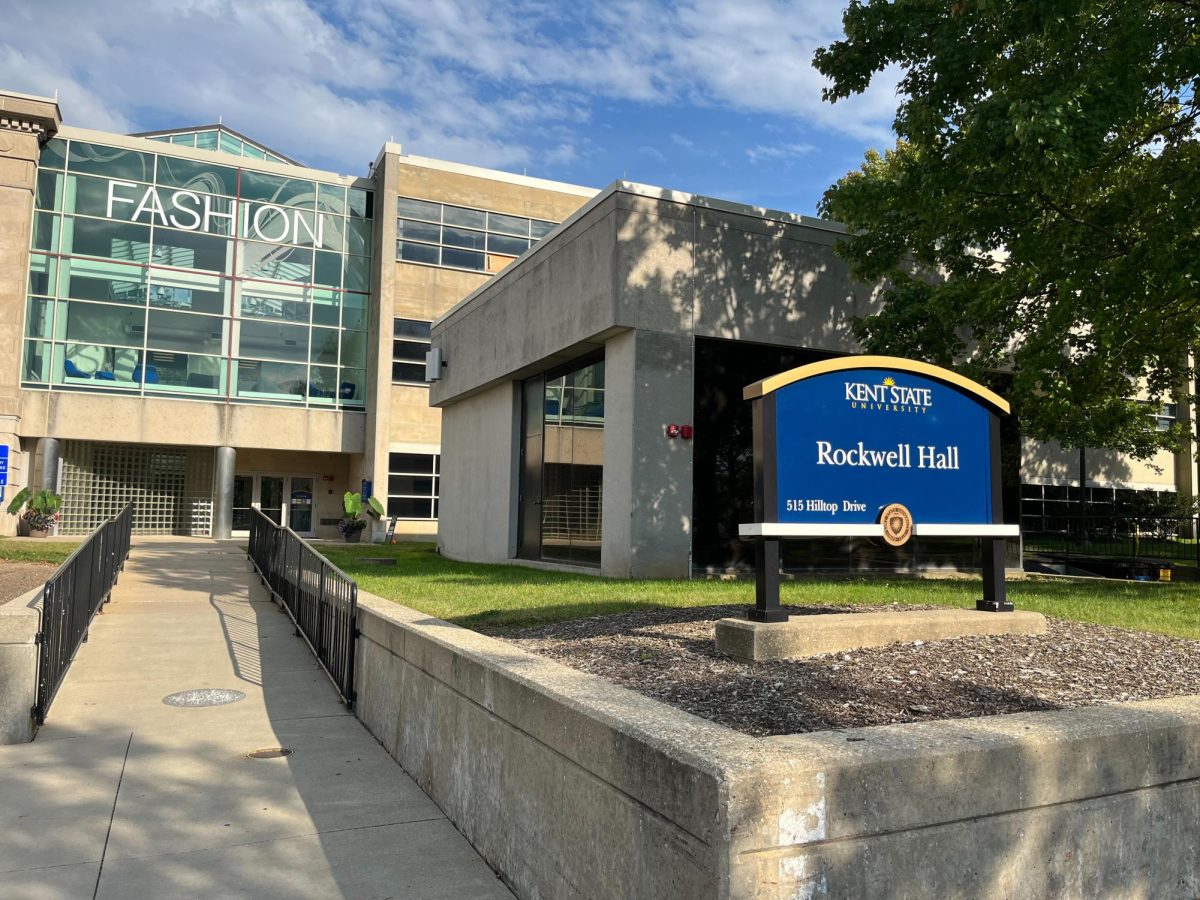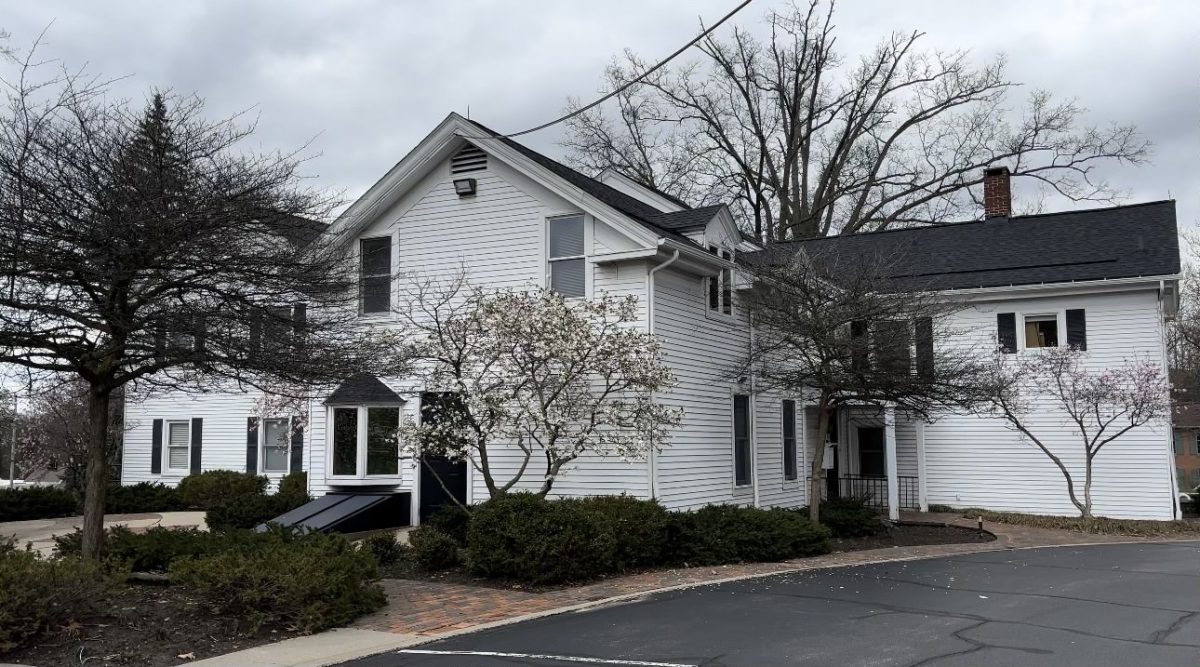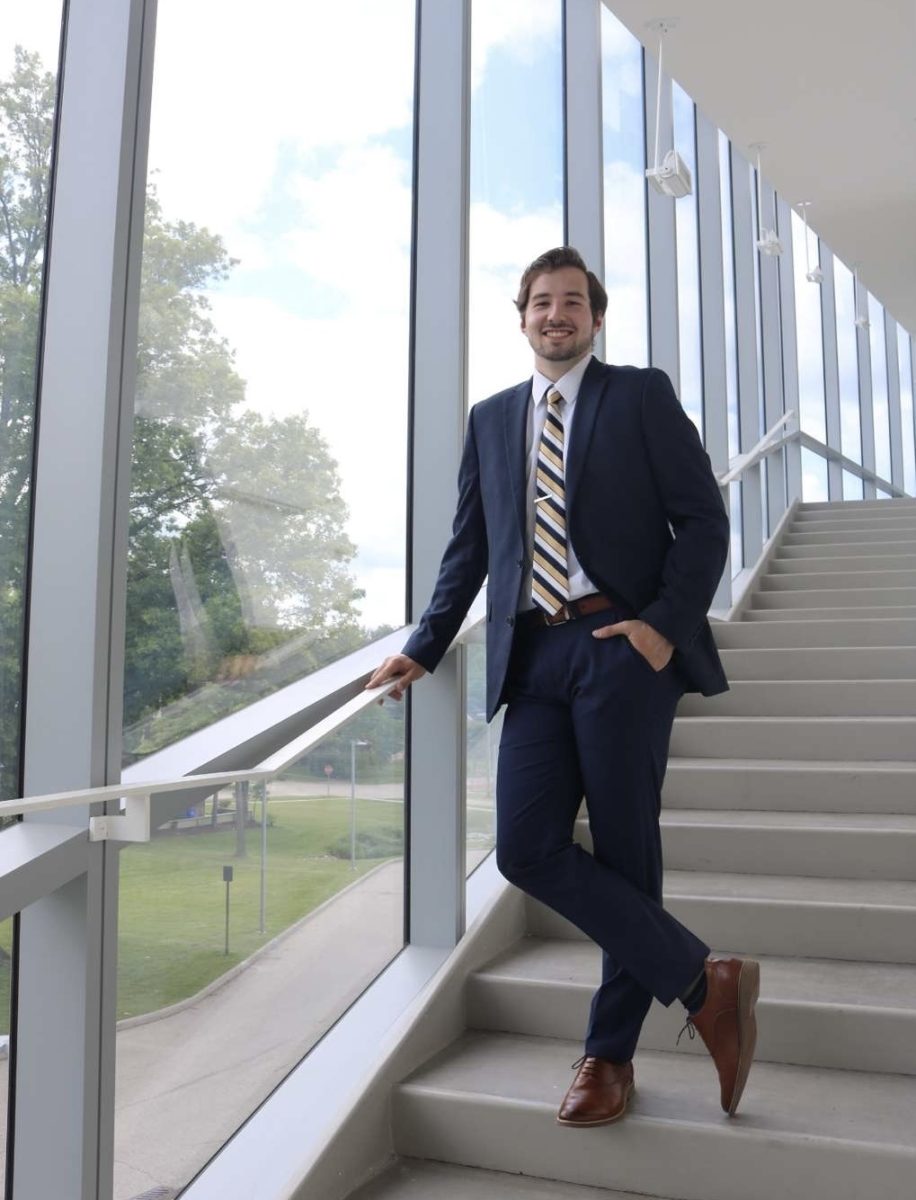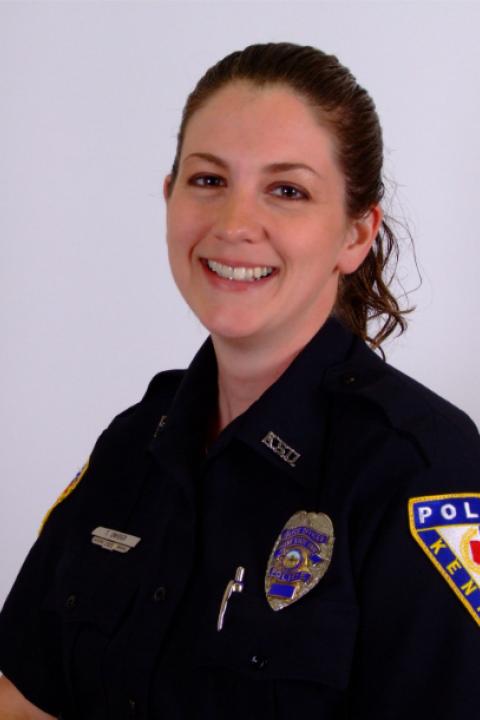In recognition of the upcoming May 4 commemoration and in response to gun-rights-activist Kyle Rittenhouse coming to campus, professionals discussed the rights, laws, values and responsibilities in regard to campus events.
University faculty Molly Merryman, Ashley Nickels, Paul Haridakis and Ben Davis, along with Chris Jenkins, assistant chief of university police services, spoke Monday evening at the May 4 Visitors Center reflection gallery.
Assistant professor Stephanie Smith and professional in-residence Roseann “Chic” Canfora from the School of Media and Journalism, along with Neil Cooper, director of the School of Peace and Conflicts studies, organized the panel.
“It’s a good time to refresh everyone’s minds with what your rights are, your rights to assemble, your rights to talk about the things that are troublesome to you, the responsibilities that we have living in a democracy, to pay attention to what’s going on and to respond appropriately to that,” said Canfora, who witnessed the May 4 shootings and whose brother, Alan Canfora, was shot and wounded on May 4, 1970.
The panel began with discussion about the nature of the free ideas exchange and handling contrasting viewpoints on campus.
“The first amendment is here to protect the unpopular, to protect the speech that somebody has to say that people don’t want to hear,” said Haridakis, director of communication studies. “We have a marketplace of ideas.”
That discussion then led into the importance of having dialogue with those who individuals disagree with or who they have opposing viewpoints with.
“It’s in discomfort where we start to learn the most,” said Davis, director of the Kent Student Center and Involvement. “If I pushed back on every time that I was uncomfortable instead of leaning into some of those things, I don’t think I would have challenged myself to understand why I believe in what I believe.”
Following the panel’s discussion on uncomfortable discourse, the focus turned to how to “fruitfully,” according to Merryman, engage in debate surrounding potential fear and discomfort among various topics.
“You are in the best place for change,” Jenkins said. “You have a voice and you have strategies — embrace it and don’t shy away from opposition.”
Merryman, an associate professor in the School of Peace and Conflict Studies, described the university as a “complex” and “vulnerable” space in terms of learning and free speech in private and public spaces; Jenkins echoed similar ideas.
“The university cannot prohibit public expression — yes, there are times, places, manner restrictions,” Jenkins said. “The shift in my perspective is how we can make it the safest and most secure environment for our university while also making it safe and secure for the speaker, the organization and the event attendees as well.”
Rittenhouse’s appearance
In reference to Kyle Rittenhouse’s expected presence on campus Tuesday, a student observer, freshman Spencer Payton, commented on the university’s definition of free speech and hate speech on campus.
“The university is more loud about defining free speech than it is hate speech, but this extremist speech that is allowed on campus — I don’t understand how the university is doing their absolute best to provide safety and security to these people, specifically minorities and underrepresented groups who are the targets of this extremist speech,” Payton said.
Haridakis responded to this concern saying, “Generally speaking, the Supreme Court has never ruled that hate speech falls outside the first amendment, it’s protected expression.”
Davis also commented on Payton’s concern, assuring the audience that Kent State is not endorsing Rittenhouse’s message and that the university “based on content, cannot disallow” him or other personnel from speaking.
As discussion focused on the power of collective voices in response to potential threats Rittenhouse imposes on campus, audience member Jacquelyn Bleak, an associate lecturer in the School of Peace and Conflict Studies, shared her voice.
“Every single one of you in this room holds power and when we put that together that’s a lot more power than the person who is going to be speaking tomorrow,” Bleak said.
Nearing the end of discussion, the panel encouraged the audience to practice their first amendment rights.
“You hold so much power, especially collectively,” Nickels said.
Lauren Bischof is a beat reporter. Contact her at [email protected].













